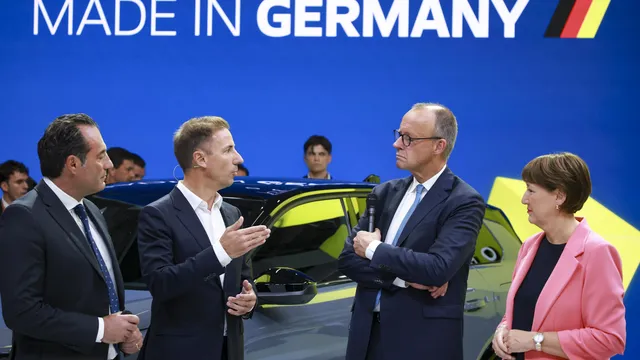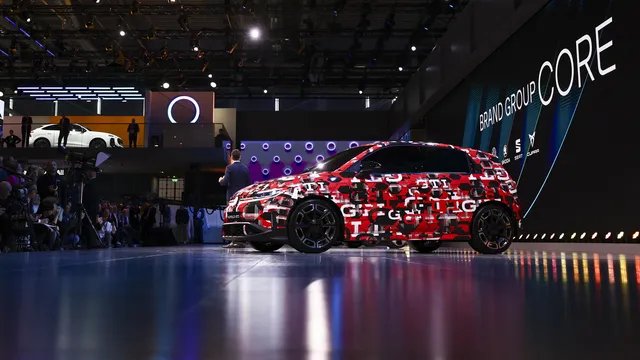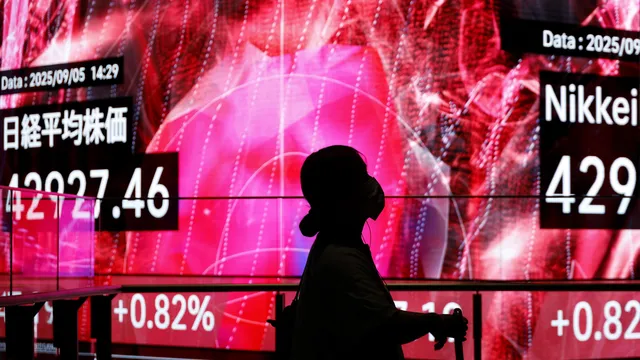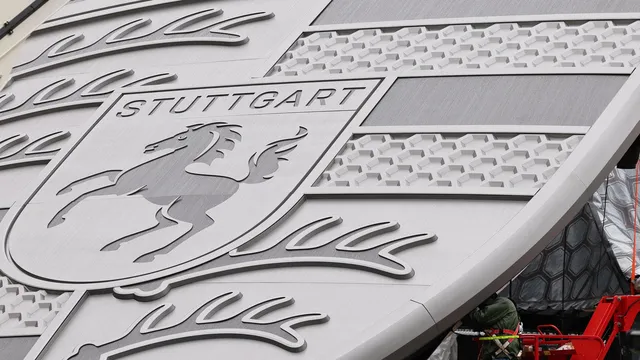German Chancellor Friedrich Merz has urged the European Union for “more flexibility” in the transition to electric vehicles, amid growing resistance to the plan to end sales of cars with internal-combustion engines by 2035, AFP reported.
He made the appeal at the opening of the IAA motor show in Munich, where Europe’s car giants rallied around a request for Brussels to reconsider the final date. VW, BMW and Mercedes-Benz, as well as the Stellantis group, have voiced serious concerns as they struggle to catch up with Chinese competitors such as BYD in the electric-vehicle segment.
Merz, who took office in May, said Germany is committed to the shift to electric mobility but warned that “Europe needs smart, reliable and flexible regulation.” He argued that unilateral political decisions favoring specific technologies are “the wrong economic approach.”
Bavarian premier and ally Markus Söder was even more direct: “Banning internal-combustion engines is a mistake. They still have a future. Electric mobility will prevail, but Europe needs more time to organise this transition.”
Industry representatives say the deadline should be postponed by at least five to ten years. The sector is already under enormous pressure — EV sales are growing more slowly than expected, production costs are rising, and competition from China is intensifying the crisis. In the past year alone Germany’s auto industry has lost more than 50,000 jobs, with Volkswagen planning 35,000 job cuts by 2030 and already announcing production halts at two plants. Similar plans are being discussed at Porsche, Audi and dozens of suppliers.
Merz plans meetings with leading industry figures to sketch out a new strategy. “Our goal is for Germany to remain one of the world’s leading centres for car manufacturing and production,” he said.
Meanwhile, more than 150 companies from the electric-vehicle sector have addressed an open letter to European Commission President Ursula von der Leyen, urging her not to back away from the 2035 target.
The presence of Chinese manufacturers at the IAA underlines how fierce the competition is — 14 companies from China versus only 10 European. Overall, 100 of the 700 exhibitors are Chinese, 40% more than in 2023. Among them is BYD, whose sales in Europe are rapidly rising. The company showcased its new Dolphin Surf model, which is already priced at around €20,000 in Europe and will soon be produced at a new plant in Hungary to avoid EU tariffs.
Volkswagen is responding to the pressure with new, more affordable models as it tries to defend its position in a rapidly changing market. | BGNES

 Breaking news
Breaking news
 Europe
Europe
 Bulgaria
Bulgaria







